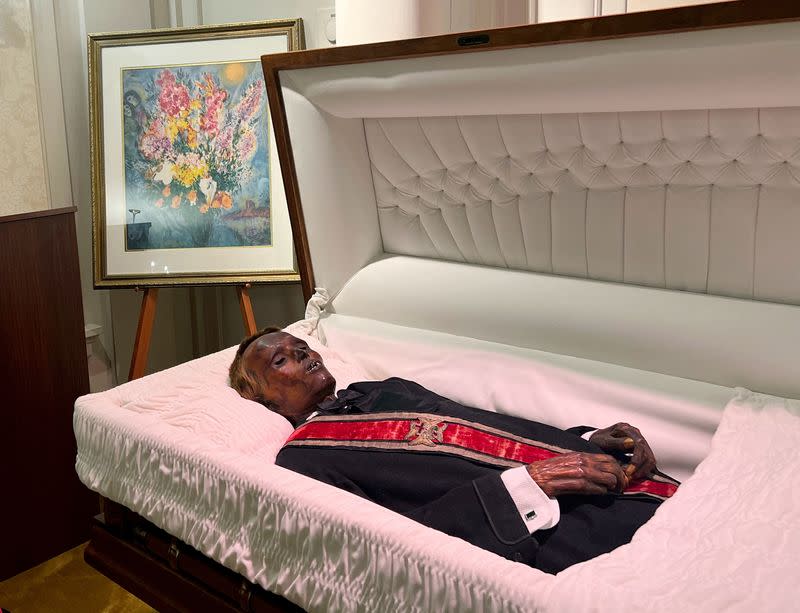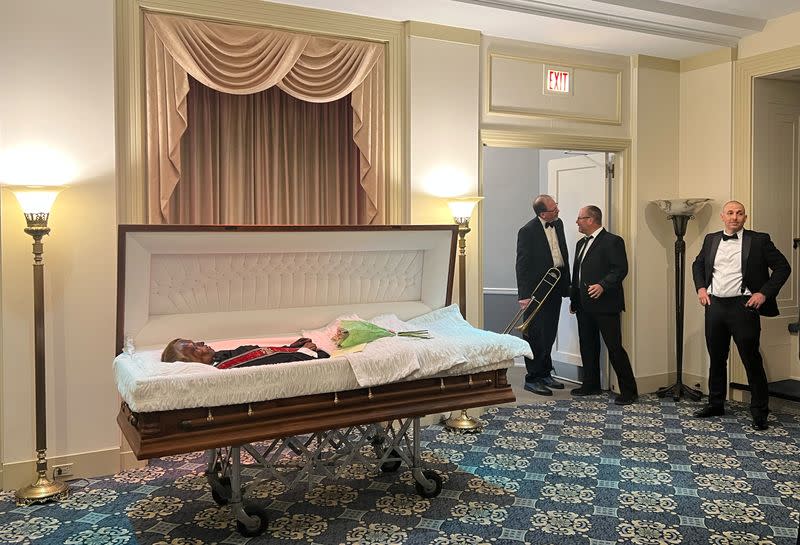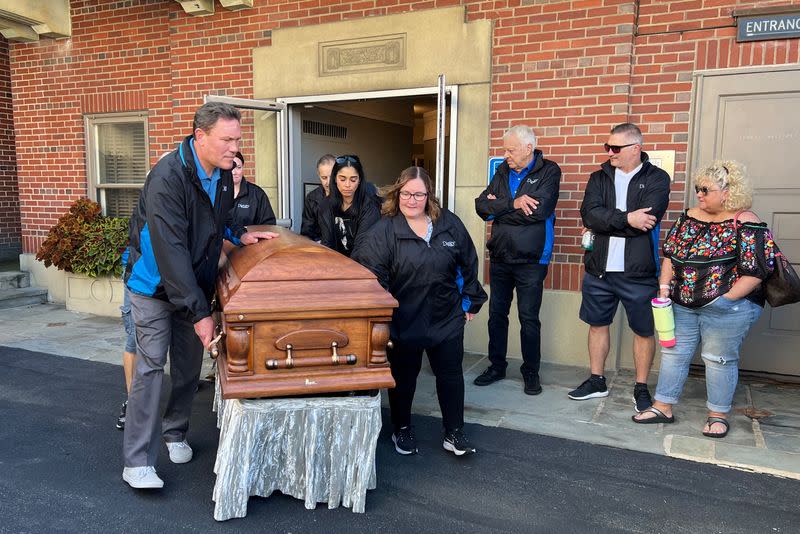Pennsylvania mummy 'Stoneman Willie' to receive proper burial after 128 years
By Kia Johnson
READING, Pennsylvania (Reuters) - A mummified man known as Stoneman Willie will receive a proper burial after being on display at a funeral home in Reading, Pennsylvania, for 128 years.
The unidentified man was an alcoholic who died of kidney failure in a local jail on Nov. 19, 1895. He was accidentally mummified by a mortician experimenting with new embalming techniques, according to Auman's Funeral Home.
Dressed in a suit with a bow tie, the gaunt man is displayed in a coffin with a red sash across his chest. His hair and teeth remain intact, and his skin has taken on a leathery appearance.
Because the man gave a fake name when arrested for picking pockets, Stoneman Willie's identity was unknown for many years and local officials were unable to locate relatives.
The funeral home had petitioned the state for permission to keep the body instead of burying it to monitor the experimental embalming process.
But Auman's Funeral Home says it has now identified Stoneman Willie using historical documents and will reveal his name later this week when they lay the body to rest. Until now, not much was known about him beyond his Irish roots.
"We don't refer to him as a mummy. We refer to him as our friend Willie," said Kyle Blankenbiller, funeral director. "He has just been become such an icon, such a storied part of not only Reading's past but certainly its present."
Ahead of the funeral, the city of Reading will memorialize the man who has been part of the city's folklore for generations.
On Sunday, local residents filed onto the streets to celebrate Reading's 275th anniversary with a colorful parade that included a motorcycle hearse carrying Willie's casket.
All this week, Willie will be on display at Auman's Funeral Home. On Saturday, he will make his final journey through the streets of Reading and will be buried at a local cemetery, where his real name will finally be inscribed on his tombstone.
(Reporting by Kia Johnson; Writing by Arlene Eiras; Editing by Lisa Shumaker)





